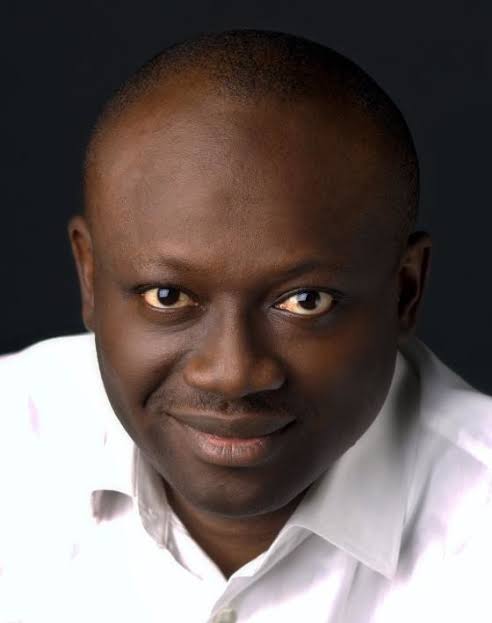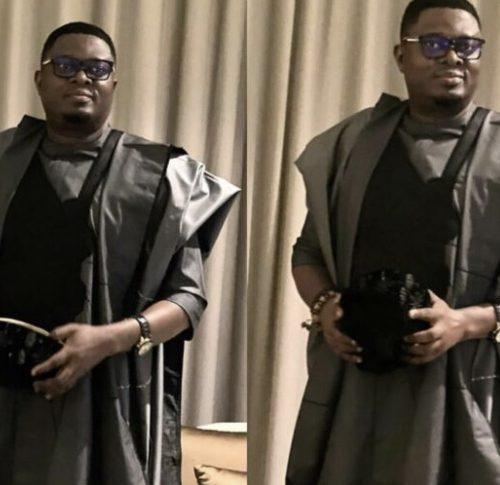“Ghana also had power problems at the time. Today, Accra, its political and economic capital, enjoys uninterrupted electricity. Nigeria? Now don’t get me started. According to Newswatch, NEPA’s installed generation capacity as of 1988 was 4,000 megawatts. It wrote: “This is expected to increase to between 10,000 and 12,000 megawatts by the year 2000.” I’m not joking. A few days ago, some 29 years after, the ministry of power happily informed Nigerians that power generation has now hit 3,000-4,000mw again. I’m not joking. Between 1988 and 2017, we have spent at least $30 billion on the power sector to generate uninterrupted darkness.”
It was midnight, not so long ago, when I woke up, used the toilet and returned to my bed to continue from where I stopped. For almost an hour, I closed my eyes in vain. I could neither induce nor seduce sleep. I was rolling from one end of the bed to the other, like a footballer faking an injury. I decided to go into my study, to prove to sleep that I could use the time for something else. My study is a junkyard. I tip-toed through the wreckage of books, old newspapers, and all sorts, and aimed for a particular Ghana-must-go housing old magazines. I randomly picked three editions of Newswatch magazine and went back to bed.
The first was the March 12, 1990 edition, “Cult of Deaths”, on the growing horror of secret cults in Nigerian universities. I flipped through within one minute. I took the second. It was the February 20, 1989 edition. The cover story was “IBB’s Surprise Move: The Sacking of AFRC”. The all-powerful Armed Forces Ruling Council was the three arms of government rolled into one: executive, legislature and judiciary (it could overrule the Supreme Court). Gen. Ibrahim Babangida, the military president, had shocked the whole world by dissolving the body. I flashed back to the controversy that followed, particularly fears that IBB was about to become a full-blown dictator.
I leafed through the magazine again and shook my head on seeing the pictures of some of Nigeria’s most powerful military men at the time. David Mark, Nura Imam, Ndubuisi Kanu, John Shagaya, Gado Nasko, Larry Koinyan, Paul Omu, Yohanna Kure, Oladipo Diya, etc. Newswatch speculated that most of them would be dropped from the reconstituted AFRC. I looked at their 40-something-year-old faces and shook my head again. “Nothing lasts forever,” I muttered to myself. Kingdoms rise and kingdoms fall. Fact of life. So whenever I see the “men of power” today chasing us off the road with their siren, I imagine where their convoy would be heading in 2027 or 2037.
On page 19 of the same edition, I saw a story on the arrest of Chief Chris Okolie, publisher of Newbreed. His magazine had written a story, “A Harvest of Generals”, following a spate of promotions in the army. The military authorities did not like the story. Punishment? He was detained without a word. That was the fate of journalists under military rule. A little story considered to be an irritation was met with the excessive deployment of state power. Today’s publishers of fake news would not have survived under a military regime. You didn’t need to publish fake news to be jailed. Just publish anything considered nauseating or “radical” and SSS or DMI would snatch you.
Flipping to page 31, I saw a short story in which Chief Ernest Shonekan, then chairman of UAC, warned that “there is little prospect for a return to the petroleum price which we enjoyed five years ago”. He was referring to the 1984 price of $28, comparing it to the $18 in 1989. He was wrong. Oil would later sell for $147 in 2008. Nigerians did not “enjoy” it, though. So maybe he was right. He also said the 20-fold increase in oil revenue in the 1970s killed productivity and only encouraged local assembly and packaging industries which “rather than become locally self-sufficient, depended on imported raw materials”. He was very right. And we are still saying the same thing in 2017.
I threw the magazine aside. I then made the mistake of my life: I picked the May 30, 1988 edition. I wish I hadn’t. I still believe it was the work of the devil. The cover design was completely black, but for the two big eyeballs in darkness as well as a slender white outline and a thick red border. It screamed: “NEPA — A Nation in Darkness.” It was a special focus on Nigeria’s power problems. This edition could have been reproduced 29 years after — I mean this year — with just little changes: the principal characters and the anecdotes. At the risk of exaggeration, I would say things were even better in those days than today, especially comparing the expenditure with the results.
Ray Ekpu, the editor-in-chief, started his weekly note thus: “Sometime in 1981, the then president of Nigeria, Shehu Shagari, was poised to make a budget speech to the National Assembly… Everyone was seated and as the president began to make a speech, the brightly lit hall turned into pitch darkness. For 15 minutes the hall was enveloped in darkness and it remained so.” He also wrote about the embarrassment Babangida faced in Kano on April 16, 1988 when he was entertaining Flt. Lt. JJ Rawlings, Ghana’s head of state, to a state dinner. There were three power cuts during the event. Everybody was embarrassed, but Rawlings managed to make a joke of it.
Ghana also had power problems at the time. Today, Accra, its political and economic capital, enjoys uninterrupted electricity. Nigeria? Now don’t get me started. According to Newswatch, NEPA’s installed generation capacity as at 1988 was 4,000 megawatts. It wrote: “This is expected to increase to between 10,000 and 12,000 megawatts by the year 2000.” I’m not joking. A few days ago, some 29 years after, the ministry of power happily informed Nigerians that power generation has now hit 3,000-4,000mw again. I’m not joking. Between 1988 and 2017, we have spent at least $30 billion on the power sector to generate uninterrupted darkness.

Let me amuse you a bit. In 2001, my landlord had promised to buy a generator big enough to power his flat and mine. Someone was relocating to the US and wanted to “fling” his generator. Suddenly, my landlord changed his mind. “If you noticed,” he lectured me, “power has improved in recent times. President Obasanjo has finally fixed the problem. There is no need to waste money on generators.” I nodded stupidly. According to official statistics, power generation had hit 3,000mw by 2001. It was time to roll out the drums. And so, 16 years after, we are still rolling out the drums to celebrate 3,000mw. Can you believe that?
When Obasanjo came up with Vision 20-2020, we were promised power generation would hit 10,000 megawatts by 2007 and 35,000mw by 2020, when Nigeria was expected to be among the 20 biggest economies in the world. The projections were brought in dead. When Obasanjo was leaving office in 2007, we were still celebrating 3,000mw of power supply. The plan, reviewed and re-presented by his successor, President Umaru Musa Yar’Adua, projected that installed capacity would grow from 6,000mw in 2009 to 20,000mw by 2015. Ladies and gentlemen, this is 2017 and we are still so glad to announce that we have hit 3,000mw again. A round of applause.
The excuses, or let me say the reasons, for epileptic power supply in 1988 are virtually the same excuses, I mean reasons, in 2017. Mr. David Oyeleye, then NEPA’s general manager, told Newswatch that “we cannot run many of the machines at Egbin because gas is not there yet… the amount of high pour fuel oil, HPFO, which is needed is not even produced in the country in sufficient quantity”. There was also the regular excuse, I mean reason: “Low level of water at Kainji and Jebba dams.” There were less than 80 million Nigerians in 1988; we are now well over 170 million. And we’re still celebrating 3,000mw. Another round of applause please.
After allowing the devil to torment me for 30 minutes, I said “No Más”, like Roberto Duran, and moved to the next story: “Why Food Prices Are Up”. An Agege housewife said she used to feed her family of six with a weekly budget of N20. “A mudu of garri now sells for N16 [so] where does that leave my N20?” she asked. At that stage, I told myself I had had enough. Get thee behind me Satan! I flung the magazine far away like Christmas banger, switched off my bedside lamp and cuddled my pillow, muttering: “But where do I get this reckless confidence from — that Nigeria will change someday?” God so good, I lapsed into unconsciousness, snoring away my midnight sorrows. Zzzzzz.
PS:
I send out this story in the hope that we all as Nigerians will do what is right and honourable. It is important who rules us but even more important are we that vote for them














